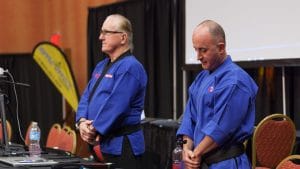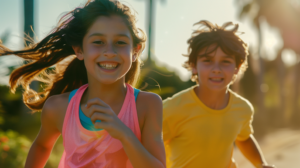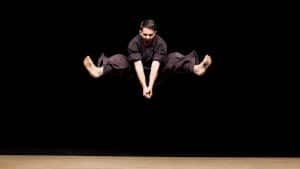It’s hard to think in terms of strength sometimes, especially when the times are unsettling. But as a karate school we’re always building strength, in students like you, but also within our own ranks.
Any martial arts organization relies on the strength of its instructors, who act as the organization’s top-tier, front-line representatives. This is true of competitive teams like Team Paul Mitchell Karate, of name-brand martial arts styles and disciplines (think of the strength and reputation associated with Gracie Jiu Jitsu, for example) and for dojos and schools like Ripple Effect Martial Arts. Kids and families in training want to know their instructors, how they look, how they sound and what they can do.
But it’s the strength of the whole team, not just the individual instructors themselves, that makes the school (and your progress as a student) effective. How the instructors work together, how their skill sets, personalities, backgrounds and different experience levels complement each other makes the school strong. As a student, you get the benefit of an ever-expanding lineage of martial artists.
We recently profiled 2nd-degree black belt Ms. Allie Hayes, one of Ripple Effect’s earliest students and co-leader of the school’s Competition Team. Like all Ripple Effect Head and Lead Instructors (aka the men and women in black doboks [tae kwon do uniforms], Ms. Hayes earned her position by coming up the ranks, literally fighting for her right to teach you. It was the same with Mr. Wagoner in Longmont, with Ms. Garcia in Fort Collins, and with Competition Team Captain Mr. Worth. The tradition continues with new up-and-coming student, junior and assistant instructors at all three Ripple Effect Martial Arts schools.
These include instructors from diverse backgrounds, including a former police officer and mother who holds black belts in multiple styles; an emerging weapons virtuoso, especially with the tri-sectional staff; and a young woman who fought through some awkward teenage inhibitions toward karate to become a 2nd-degree Black Belt.
You can head over to our Instructor Bios page to get to know your team of karate instructors in a bit more detail. Of course there’s no better way of getting to know their personalities, Black Belt skill sets and teaching styles than bowing in to karate class, either in-school or online.



